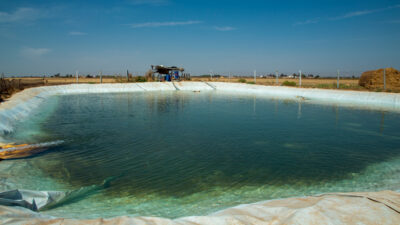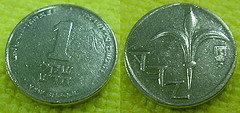
Fall Armyworm is invading the Near Middle East. New reporting app aims to mitigate risk, spread awareness.
The United Nations launched today a three-year Global Action for Fall Armyworm Control to scale up efforts to curb the growing spread of the invasive pest which is causing serious damage to food production and affecting millions of farmers across the world.
Fall Armyworm (FAW), a crop pest native to the Americas, has rapidly spread through Africa, and to the Near East and Asia in the past four years.
The Fall Armyworm (FAW) is an insect pest, which causes considerable yield losses in cultivated maize, rice, sorghum, millet, and other crops as it is capable of attacking over 80 species of crops, if not under good management and control.
Based on 2018 estimates, every year up to 17.7 million tonnes of maize (corn) are lost to this pest in Africa alone. This amount of maize could feed tens of millions of people; and represents an economic loss of up to $4.6 billion.
“It threatens food security of hundreds of millions of people and the livelihoods of smallholder farmers,” said FAO Director-General Qu Dongyu. He made the remarks at the launch of the Global Action on the sidelines of the FAO’s Council, the Organization’s executive body.
In his address, Qu said that the FAO needs $500 million over the next three years to control Fall Armyworm. Solutions like biological control can stop the Fall Armyworm, if applied correctly. To this end, he proposed the establishment of a Global Action Fund – the first ever multi-partner trust fund aimed at addressing the Fall Armyworm threats, – and encouraged countries to contribute to this funding mechanism.

Insect radar
Countries in the Middle East should consider investing in an insect radar. The idea was proposed more than 20 years and Israel installed its first insect radar in the Hula Valley in 2022.
The initiative also calls for increased partnerships to complement current FAO mechanisms such as Farmer Field Schools and South-South and Triangular Cooperation as well as to create new cooperation channels, Qu noted. In particular, he added, it will feed into FAO’s new data-driven Hand-in-Hand initiative to target interventions where most needed.
“We must all work together, FAO, international organizations, governments, the private sectors, research centres, academia, and civil society. With the proposed Global Action, FAO commits to putting the knowledge, experience and lessons learned from stakeholders and partners at the service of farmers throughout the world to stem the global threat of this pest,” the FAO Director-General concluded.



